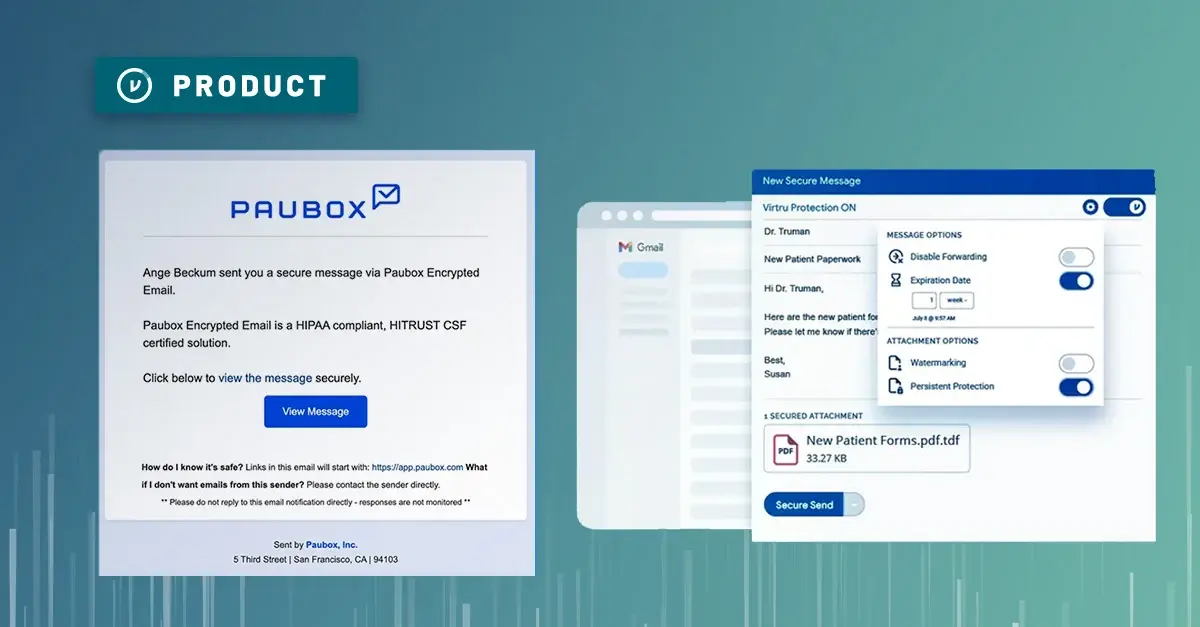Bessemer: Why Best-In-Class Cybersecurity is Table Stakes for Defense Tech
/blog%20-%20bessemer%20report/military-cybersecurity-dod-01.webp)

To say defense organizations have their hands full in this geopolitical climate would be a massive understatement. Among a sea of priorities and escalating conflicts around the world, these organizations are tackling physical and cyber threats at scale — and they can’t do it alone. That’s why the DoD and the broader defense industrial base (DIB) are teaming up with innovative private-sector tech partners to accomplish critical missions.
Bessemer’s latest Defense Tech Roadmap underscores that 2024 will be a transformational year for defense tech innovators, as the U.S. government is now collaborating with startups more than ever to address the major national security needs posed by constantly changing geopolitical dynamics. Bessemer goes on to highlight the fact that cybersecurity is a critical need underpinning all of these efforts, with “renewed focus on best-in-class cybersecurity solutions as table stakes” for defense tech.
In the roadmap, Bessemer highlights Virtru as an innovative company that is tackling the vital need for data-centric cybersecurity, with solutions that span horizontally across the many domains of defense. Here’s why Virtru’s work is especially relevant and timely.
Cybersecurity Defense: Why the DoD Is Prioritizing Data-Centric Security
It’s not hard to see why cybersecurity is a key area of focus in defense tech. Every day brings news of zero-day vulnerabilities and nation-state cyber attacks. Case in point: at the time of writing, news outlets everywhere are covering yet another story of Chinese hackers targeting U.S. critical infrastructure — including naval ports, internet service providers, and utilities.
But here’s the thing: Attacks like these are carried out by just 1% of identities — digital black hats who relentlessly seek to steal our data for nefarious purposes. Conversely, defense agencies execute missions every single day which require them to rapidly share sensitive data with digital identities consisting of allies and white hat mission partners, who legitimately need access to information to get their jobs done.
As outlined in the DoD Zero Trust Strategy, strong cybersecurity is paramount to national defense, but cybersecurity must enable — not limit — collaboration. “Access to mission information systems and mission partner interoperability are becoming increasingly important as the DIB and foreign partners are significant to coalition warfare and the Joint Warfighting Concept (JWC),” the Bessemer team writes. “Information and data must be effectively shared, accessed and protected based on user attributes, operational need, and delivered by least privilege policies.”
That’s where Virtru comes in, with a Data Security Platform that allows for real-time, highly secure collaboration across mission partners, with attribute-based access controls that protect and enforce granular policies at the intersection of tagged data and entitled identities.
DoD Cybersecurity Strategy: Defense Organizations Are Investing in Secure Collaboration
So, what’s the market for this kind of cybersecurity capability? As Bessemer highlights, the TAM for defense tech is enormous: The 2024 defense budget is $886 billion. “We’re excited to back companies that can sell technologies solving needs shared across multiple branches of the DOD,” the Bessemer team writes. “Many of these companies can also sell to other liberal governments across the world.”
Virtru is proud to be one of those trusted organizations. As we highlighted in our October announcement, we’ve seen 140% year-over-year revenue growth in the federal market, and we’ve been an active participant in federal initiatives such as the Bold Quest exercises and the NIST NCCoE Data-Centric Security and Classification Consortium.
Virtru Enables Zero Trust Sharing at the Intersection of Data and Identities
Virtru operates at the intersection of data and identities and makes information sharing easy, without sacrificing security, privacy, or ownership. As Bessemer states, “The success of any modern organization, commercial or federal, is tied to the insights gleaned or products built from its data.” This is especially true for federal defense organizations, which have a wealth of data that they need to share and derive value from. Much of this data is tagged depending on its sensitivity. These organizations also closely manage identities to ensure that individuals have the entitlements necessary to access certain information.
A vital and unique role the Virtru Data Security Platform plays in this ecosystem is bridging the gap between tagged data and entitled identities. Virtru is the engine that can enforce access to protected information through attribute-based access control. This allows for faster, more secure mission interoperability for partners across borders and locations, while ensuring data is only accessible by the right people, with the right credentials, in the right location, at the right time.
The Time Is Now: A Rising Tide for Data-Centric Interoperability
As Virtru’s Shannon Vaughn highlighted in a recent blog post, the time for data-centric collaboration is now. The driving force behind data-centric security in defense today is collaboration: “There’s been no shortage of discussion and movement toward getting to Zero Trust data access and Data Centric Security, but data-centric interoperability is the unspoken why,” Vaughn emphasized. “The US DOD's move to replace all legacy Network-Centric Security (NCS) systems with a Secret Releasable Data Centric Security (DCS) framework marks a significant turning point. This transition, as showcased by CENTCOM's CPE program, has heightened coalition involvement and improved collaboration, notably in operations like Targeting and Combat Assessment/Battle Damage Assessment.”
Secure Collaboration Fuels Innovation in Defense Tech
Simply put, highly secure and highly flexible collaboration options benefit the DoD, global mission partners, and defense contractors alike. To address global crises and solve important problems, organizations need highly secure, efficient collaboration that ensures highly sensitive data can only be accessed by the right people, at the right time.
One Virtru customer, Dr. Dan Berrigan at the Air Force Research Laboratory, said it well: “We can’t just lock ourselves in a basement and attempt to solve things ourselves, nor can we completely and freely go out and engage our partners with the assumption that our research and proprietary information is secure. We’ve ensured our tech stack facilitates the seamless exchange of ideas, accelerating our maturation cycles and the pace of innovation that AFRL must operate at,” says Berrigan. “When it comes to communicating with third-party partners, we believe frictionless collaboration holds the same level of importance as privacy, security, and compliance with governance controls. AFRL invests in its collaboration tool stack by using the Google Workspace suite to foster that simple, easy-to-use collaboration, along with Virtru’s client-side and server-side data protection to provide additional layers of security for sensitive information.”
Virtru also supports the DIB by providing powerful access controls and FedRAMP-authorized encryption for CMMC 2.0, ITAR, CJIS, and other regulations, aligned with NIST and many other security standards.
The open standard that underpins Virtru’s technology, the Trusted Data Format, was born in the federal government — and it continues to benefit both public- and private-sector customers with its military-grade security and granular policy controls.
As we continue our momentum in 2024, Virtru is providing foundational collaboration capabilities and best-in-class security to support our federal customers. Interested in learning more about our solutions for the DoD and DIB? Contact our team to start the conversation.

John Ackerly
As Virtru's CEO and Co-Founder, John is a long-time privacy advocate with experience scaling growth companies and shaping technology policy. He previously served leading economic and strategic roles in the White House and U.S. Department of Commerce. John holds degrees from Williams College, Oxford as a Rhodes Scholar, and an MBA from Harvard Business School.
View more posts by John AckerlySee Virtru In Action
Sign Up for the Virtru Newsletter




/blog%20-%20HIO%20Maya%20HTT/Maya-HTT-Level-2-lessons%20copy.webp)

/blog%20-%20cmmc%20level%203/CMMC-LEVEL-3.webp)

/blog%20-%207%20Healthcare%20Vulnerabilities/7-hipaa-vulns.webp)
/blog%20-%20please%20delete%20that%20email.%20domain%20wide%20protection/please-delete-that-email.webp)
/blog%20-%20next%20breakfast/next-breakfast-2.png)